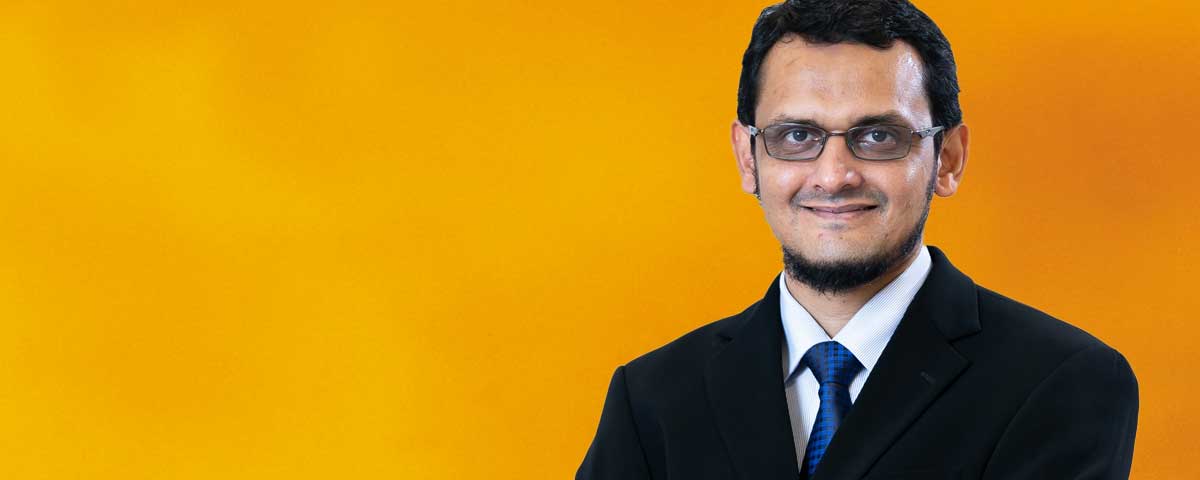
-
SE Asia (HQ)
+65 3158 9940
-
Australia
1300 798 820
-
New Zealand
+64 9801 0299
Meet the Specialist: Dr Aminudin Rahman Bin Mohd Mydin
- Home
- News Archive
- Meet the Specialist: Dr Aminudin Rahman Bin Mohd Mydin
“Too often, patients are seeking information early on from social media and from the internet and they may be being provided with misinformation about unproven therapies. If they wait too long to seek medical care, then their cancer might not be curable.”
Malaysian sarcoma specialist Dr Aminudin Rahman Bin Mohd Mydin, Consultant Clinical Oncologist from KPJ Damansara Specialist Hospital, believes novel immunotherapy agents may one day change outcomes for difficult to treat sarcomas, with “promising responses” recorded in some of his own patients. While there is no phase 3 evidence yet supporting the use of immunotherapy in these cancers, patients can have hope that ongoing research efforts will continue to make a difference, as will the emergence of targeted agents to enable more durable disease control. As Specialised Therapeutics Asia prepares to reintroduce a global sarcoma therapy to the region, Dr Aminudin outlined his vision.
What is your reaction to the reintroduction of a global sarcoma therapy in South East Asia?
This is an exciting new development and will provide a new treatment option for many of our sarcoma patients. Essentially it means we have another option for these patients who are affected by these rare tumours. Sarcomas represent about 1% of adult cancers in Malaysia and in the region, but unfortunately, most patients present at advanced stage, when their disease has metastasised. This is a significant problem. Results are poor with current therapies, so any additional options are very welcome.
What is the incidence of sarcoma in South East Asia and what are the median survival outcomes?
Data in Malaysia suggests there are just over 200 cases of sarcoma per year in this country alone (Malaysian National Cancer Registry Report 2012-2016). About one-quarter of these would be liposarcoma or leiomyosarcoma, which are another sarcoma subset.
Almost half – around 40% – of patients who present with sarcoma in Malaysia are already at Stage 4 disease, with about 20% presenting at stage 3.
When they are stage 4, they are incurable, and the median survival is about 14 – 20 months. That is why there is this need for new therapies. With standard induction therapies, the response in these patients is not that great – patients would typically not receive a very durable, long term response. So, what we need is a maintenance therapy that can be introduced after induction therapy. This is typically the treatment scenario we would see with other advanced cancers, like lung, breast and ovarian cancers
What are the early symptoms of sarcoma and are there any known causes?
Early symptoms of sarcoma might be when a patient develops a painless mass or a lump, usually on the upper or lower limbs, although they can arise anywhere in the body. A lump in the abdomen may cause back pain, abdominal pain and so forth. Some of the possible causes can be previous radiation exposure or radiotherapy treatment. Some patients have had this kind of therapy many years earlier and can later develop a sarcoma at the site. In other cases, there may be a genetic abnormality that can predispose someone to sarcoma.
But generally, these cancers are rare and a cause for the vast majority of sarcomas is unknown.
What is your sarcoma vision for 2030?
It is my hope that by 2030, sarcomas are diagnosed at earlier stage when they are curable and I think to do that here in Malaysia, we will need a cultural shift.
Too often, patients are seeking information early on from social media and from the internet and they may be being provided with misinformation about unproven therapies. If they wait too long to seek medical care, then their cancer might not be curable.
There is certainly hope for patients and the signs are good. It is a long journey, but we are learning more all the time about genetics and molecular biology, which is helping us develop more targeted therapies. In other cancers like metastatic non-small cell lung cancer for example, one in three patients are now alive at five years post-diagnosis with effective treatment. This was unheard of 10 or 20 years ago. We can also replicate that in sarcoma, but there is a lot of work to do, and we have not reached that level yet. Sarcoma is a very heterogenous group of diseases, so we need to better understand the disease at a molecular and genetic level and translate that understanding into new therapies.
When it comes to immunotherapy, there are also some promising signs, although there is no phase 3 data yet. Trials in small groups have shown this kind of treatment to be effective, although it is not an approved therapy platform yet in sarcoma. I have used it and have seen some response. I expect there will be a significant role for immunotherapy in the future.
As a clinician, what inspires you about working with sarcoma patients?
I was not born into a family of doctors, but I was inspired by doctors treating our family growing up. I decided to do oncology after graduation – it is the contact with patients and their families that inspires me most. I have learned so much from many of them.
From a scientific perspective, oncology is an exciting field as there are always new developments. It is important that our fascination with the science doesn’t mean we forget there is a patient and a family in front of us and they are all impacted by the disease. Cancer impacts a whole family and a whole society.
Being an oncologist is challenging, time consuming and exhausting. But it is ultimately satisfying to treat and support the patients and their families through the journey.
*May 2021


